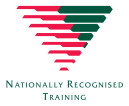Diploma of Work Health and Safety
BSB51319
BSB51319 - Diploma Work Health and Safety
This course is designed for students currently working within the area of work health and safety who wish to gain more specialised skills and knowledge. You will study the theory, legislative requirements and practical applications of work health and safety principles to enable you to build upon existing knowledge; provide guidance in the compliance of legislation and implementation of effective WHS management systems. What You'll Learn in the Diploma of Work Health and Safety Course
This course will take you through the aspects of work health and safety from start to finish. You will learn the key skills required to lead WHS risk management and contribute to the development, implementation, and maintenance of WHS management system’s.
Through the Diploma you will develop your skills in communication, risk management and WHS compliance. Additionally, you will develop skills in problem-solving, particularly for situations found in WHS roles.
Call us on (08) 9321 6307 to find out more


How will this course help me?
Upon successful completion of 10 units, participants will be awarded the Diploma of Work Health and Safety (BSB51319). The Diploma of WHS is highly regarded within industry. This program has been designed in conjunction with our in-house health subject matter expert, whom has first hand experience working within industry. Participants will learn how to identify, assess and control conditions in the work environment that are harmful to the health and safety of people in all occupations. You will study the functions of policy development, risk management, compensation, rehabilitation, injury management and application of the legislation.
Upon completion students will possess the relevant skills and knowledge to contribute to the development and implementation of WHS systems, policy, compliance and culture.

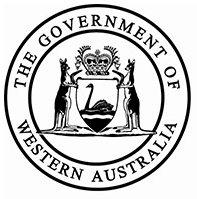
How Would You Like To Qualify As A WHS Leader?
Online
Our online Diploma Work Health and Safety course is a great choice for learners wanting the flexibility to learn at their own pace in the comfort of their own space.
Prior Experience
If you've been working in projects you may qualify for Recognition of Prior Learning (RPL). This is a way for experienced people to fast track the qualification.
Looking for customised Corporate Training?
Scope is experienced at designing custom learning experiences and has partnered with businesses of all shapes and sizes across a range industries.
A Diploma of Work Health and Safety can be customised and delivered to your organisation.
This will include integrating your values, policies, processes, frameworks as well using examples based on your industry.

Companies we’ve worked with include

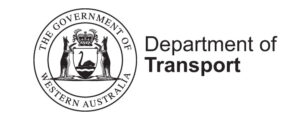
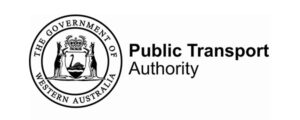
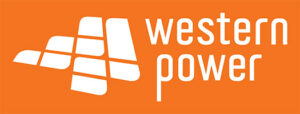
Diploma of Work Health and Safety Units
CORE UNITS
This unit describes the skills and knowledge required to lead the management of work health and safety (WHS) risks in an organisation. The unit includes facilitating the identification of hazards and potential hazards, leading the assessment of associated risks, selecting and implementing suitable risk controls, and evaluating the overall effectiveness of the organisational WHS risk management process. It involves communicating with stakeholders throughout the process.
The unit applies to those in an organisation who provide specialised knowledge and guidance to a range of personnel when leading the management of WHS risks.
This unit describes the skills and knowledge required to lead the initial response to work health and safety (WHS) incidents. The unit also includes planning, conducting and reporting on investigations of WHS incidents that have resulted in, or have the potential to result in, injury or damage. This may include accessing specialist expertise.
The unit applies to those who work in a range of WHS roles across all industries, and apply a substantial knowledge base and well-developed skills in a wide variety of WHS contexts. It does not apply to those undertaking an investigation in order to provide legal advice or prepare for legal proceedings.
This unit describes the skills and knowledge required to contribute to the development, implementation and maintenance of elements of a work health and safety management system (WHSMS). WHSMSs support organisations in systematically managing work health and safety (WHS) in the workplace. WHSMSs consist of a documented set of plans, actions and procedures that target improvements.
The unit applies to those with organisational responsibilities for contributing to tasks in relation to elements of a WHSMS appropriate to the nature and scale of the organisation and its WHS risks. These people will have supervisory responsibilities, work in a range of WHS roles across all industries, and apply a substantial knowledge base and well-developed skills in a wide variety of WHS contexts.
This unit describes the skills and knowledge required to lead the development and use of work health and safety (WHS) risk management tools.
The unit applies to those responsible for managing hazards in the workplace whose role requires them to provide leadership in WHS risk management.
This unit describes the skills and knowledge required to manage the identification, review, development, implementation and evaluation of consultation and participation processes as an integral part of managing work health and safety (WHS).
The unit applies to those responsible for facilitating consultation about and participation in WHS management and decision-making across the organisation. These people work in a range of WHS roles across all industries, and apply a substantial knowledge base and well-developed skills in a wide variety of WHS contexts.
ELECTIVE UNITS
This unit describes the skills and knowledge required to lead and coordinate organisational arrangements for managing the work health and safety (WHS) compliance of contractors. It involves determining the WHS legislative and organisational requirements applicable to contractors, and managing compliance of contractors.
The unit applies to those in managerial positions overseeing functions within organisations across all industries that are supplied with services by contractors, including labour hire and temporary workers, cleaning, catering, security, maintenance, repairs, installations and alterations, and major contracts and projects, as relevant to the organisation. This includes casual and volunteer workers. It does not cover visitors, or outworkers or suppliers of goods, materials or products to workplaces.
This unit describes the skills and knowledge required to implement initial response procedures for emergencies. Its focus is on the implementation of procedures already developed for short-term emergency responses. It assumes that expert advice will be available in identifying potential emergencies and in formulating response plans.
The unit applies to those with supervisory responsibilities for managing work health and safety (WHS) in the workplace who contribute to the implementation of procedures for responding to emergencies. These people work in a range of WHS roles across all industries, and apply a substantial knowledge base and well-developed skills in a wide variety of WHS contexts.
This unit describes the skills and knowledge required to implement a system of work for managing the use, handling, processing, storage, transportation and disposal of hazardous chemicals in the workplace; and to verify and validate the effectiveness of that system and the control methods in place against safety data sheet (SDS) requirements. The unit includes the application of the hierarchy of control measures, and applicable legislative requirements and licensing conditions imposed on the workplace in managing these hazardous chemicals.
The unit applies to those accountable for ensuring that a system of work is in place for managing hazardous chemicals in a specified work area. The system of work to be implemented protects all those potentially at risk in the workplace from exposure to hazardous chemicals, including internal and external personnel.
This unit describes the skills and knowledge required to coordinate Workers’ Compensation and sick leave claims. It also covers the coordination of rehabilitation needs and return to work programs and their monitoring, review and evaluation.
The unit applies to individuals who coordinate claims and ensure that the organisation provides appropriate support for the worker.
No licensing, legislative or certification requirements apply to this unit at the time of publication.
This unit describes the skills and knowledge required to contribute to monitoring a range of physical agents and conditions relating to work health and safety (WHS) in the workplace. It involves the use of a range of measuring devices to collect, interpret and report on workplace information and data in relation to those physical agents and conditions.
The unit applies to those working in a broad range of WHS roles across all industries.
The unit does not extend to hazard identification, risk assessment or developing risk controls based on the outcomes of monitoring, which are covered in BSBWHS414 Contribute to WHS risk management.
This unit does not qualify individuals to perform duties as a registered officer under any legislation.
Looking for different units? Contact our team and we can discuss what other units may be available as well as if your previous experience can reduce the course requirements.

How long will it take to complete?
The great thing with competency based training is that completion of a course is based on your ability to demonstrate your ability to perform to industry standard. This allows you to complete at your own pace.
There are no exams in the course, it is very practical and based upon things you’re going to face in a project environment.
We provide students with the ability to complete the Diploma of Work Health and Safety Practice over a one year period; however we find that the average time is between 3 to 6 months. During that time there is a large variance in the amount of time each student spends working on the qualification.
Give us a call, email, use the chat or whatever is easiest and we can give you an estimate based on your situation as well as how your experience may help you complete faster.
What are the entry requirements?
The pre-requisite to enroll in the Diploma of Work Health and Safety is the sucessfull completion of the Certificate IV in Work Helath and Safety (BSB41419) core units. To achieve these, you can enroll in our Certificate IV program or complete its five core units individually with Scope Training. Get in touch with our team to kick start your WHS goals!
You will need a computer and an internet connection to complete the Diploma of Work Health and Safety. Having said that we believe that learning is most valuable when applied. So it’s best to have a workplace or previous which you can use to apply your learning.
Our model isn’t geared for those coming straight out of school and find that most of our students come from one of two paths.
Participants should hold a Certificate IV in Work Health and Safety. However there are a number of other accepted qualifications from industry areas such as Business, Health and Safety etc. Many participants of this program are tertiary qualified professionals looking to migrate into a project role.
In regards to the Diploma of Work Health and Safety, practical experience may include but is not limited to experience within a project environment, or another technical field, this may be either as a team member, supervisor or leading hand.


What Jobs Can I Get with a Diploma of Work Health and Safety?
The Diploma of Work Health and Safety conveys to employers that the holder has practically demonstrated the skills and knowledge to work effectively within the health and safety management environment. Furthermore a qualification from Scope Training advocates that the learner has demonstrated the ability to apply these skills in a work context, reassuring employers of job-readiness.
Job Roles include: Work Health and Safety WHS/OHS Manager, Work Health and Safety WHS/OHS Practitioner and Senior Work Health and Safety WHS/OHS Officer, Work Cover assessors and trainers, Work Health and Safety WHS advisor, and HR practitioner

